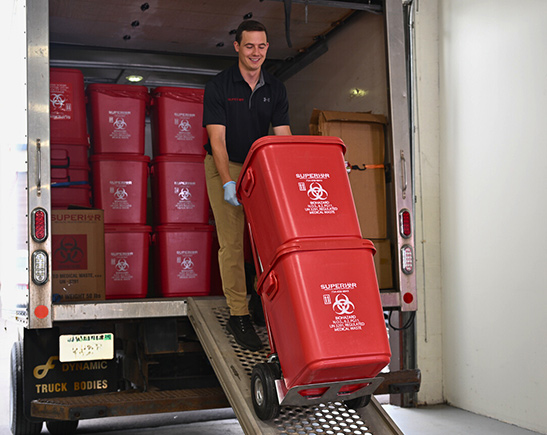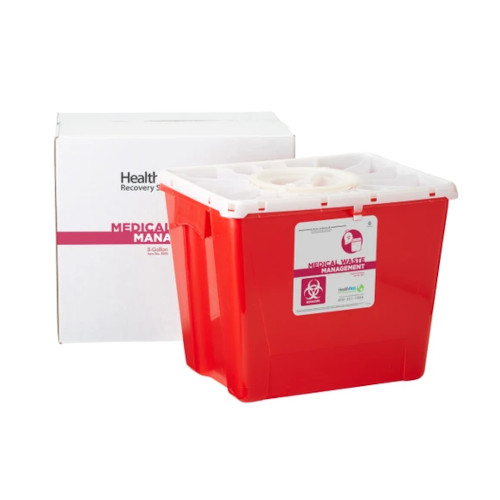Expert Solutions for Health And Wellness: Revealing the Medical Waste Removal Service Advantage
Expert Solutions for Health And Wellness: Revealing the Medical Waste Removal Service Advantage
Blog Article
Discovering Different Garbage Disposal Options for a Cleanser Setting
In the quest of a cleaner atmosphere, the management of waste disposal has actually become a crucial prime focus for sustainable advancement. With a multitude of waste disposal alternatives available, varying from standard garbage dump approaches to ingenious waste-to-energy innovations, the choice of how we manage our waste has far-reaching ramifications for our planet's well-being. By taking a look at the various strategies and strategies used in recycling, composting, incineration, landfill monitoring, and waste-to-energy processes, a much deeper understanding of their influences and performance can be gotten. The mission for optimum waste disposal methods that prioritize ecological preservation while satisfying the needs of a growing population stays a pushing worry in today's world.
Recycling Techniques
Applying reliable recycling methods is vital in minimizing waste and promoting sustainability in our atmosphere. Reusing involves the process of transforming waste materials right into reusable objects to protect against unneeded disposal. Among one of the most typical recycling techniques is material healing, where products like paper, glass, steel, and plastic are accumulated, sorted, and refined to develop new products. This procedure not just saves all-natural resources but also decreases energy usage and greenhouse gas emissions related to producing new materials from the ground up.
Another essential recycling technique is composting, which entails breaking down organic waste like food scraps and yard trimmings into nutrient-rich dirt. By integrating these numerous reusing techniques into our waste monitoring practices, we can significantly lower our environmental footprint and relocate towards an extra lasting future.

Composting Techniques
Effective waste monitoring methods, such as reusing approaches, lead the way for a cleaner setting, and now, shifting the emphasis to 'Composting Techniques', we explore lasting means to disintegrate organic waste for ecological benefit. medical waste removal near me.
Composting is a natural process that changes organic waste, like food scraps and backyard trimmings, into a nutrient-rich dirt modification. The trick to successful composting depends on developing the right equilibrium of eco-friendly materials, such as vegetables and fruit scraps, and brown materials, like dried leaves and branches. These products disintegrate with the assistance of microbes, breaking down the waste into useful compost.
Traditional yard composting involves layering organic products in a container or pile and frequently transforming the combination to aerate it. By making use of composting strategies, we can reduce the amount of waste sent out to land fills while producing a helpful product for enriching dirt and sustaining plant development.
Incineration Disadvantages and pros
Incineration, as a waste disposal method, provides both benefits and disadvantages that merit cautious consideration in the realm of sustainable waste monitoring methods. On the positive side, incineration can substantially lower the volume of waste, reducing the demand for landfill space and potentially lowering greenhouse gas discharges. Incineration additionally enables the recovery of power through the generation of electricity or warmth, adding to source recovery. Moreover, the process can be made use of to ruin unsafe substances, offering a secure method for taking care of specific kinds of waste that may present threats to public health and the environment if left untreated.
Nonetheless, there are notable disadvantages to incineration. One significant problem is the prospective release of damaging toxins right into the air, such as dioxins, heavy metals, and particulate issue, which can have damaging effects on human health and wellness and the setting. Additionally, the high initial investment and operational expenses of incineration centers pose economic challenges, making it a less affordable choice contrasted to various other waste administration strategies. Mindful monitoring and guideline are necessary to reduce these unfavorable impacts and make the most of the benefits of incineration as part of a thorough waste management technique.
Landfill Administration Approaches
Landfills play an essential duty in waste administration and environmental conservation by giving a control system for the disposal of strong waste products. Effective land fill management techniques are necessary to mitigate ecological impacts and make sure the long-term sustainability of these waste disposal sites. One key strategy appertains waste compaction to take full advantage of making use of offered area within the garbage dump (click here). By compacting the waste, the volume is decreased, permitting more waste to be fit over time.
Additionally, the implementation of day-to-day cover techniques is crucial in lessening odors, preventing clutter, and minimizing the tourist attraction of insects. Covering the disposed waste at the end of every day helps to contain smells and stop prospective ecological contamination. Furthermore, the monitoring of land fill gas discharges and leachate degrees is essential in guaranteeing that environmental criteria are satisfied which any potential dangers to surrounding ecological communities are lessened.

Waste-to-Energy Technologies
Among the cutting-edge approaches to waste management involves utilizing Waste-to-Energy innovations to convert solid waste into usable energy sources. Waste-to-Energy (WtE) technologies incorporate a variety of processes that aim to draw out power from waste materials with thermal, read chemical, or biological means. This conversion process not only decreases the volume of waste that winds up in land fills yet additionally generates useful power resources such as power, warmth, or biofuels.
There are a number of methods of Waste-to-Energy conversion, consisting of gasification, incineration, and pyrolysis. Incineration involves burning waste at high temperatures to create heat and electricity. Gasification transforms waste into a syngas, which can be used for power generation or chemical production. Pyrolysis breaks down natural materials using heats in the absence of oxygen, producing bio-oil, char, and gas.
Carrying out Waste-to-Energy technologies can assist mitigate ecological issues related to standard waste disposal approaches while at the same time giving a renewable resource resource. Careful consideration needs to be offered to emissions control and making sure the sustainability of feedstock products for these innovations to be absolutely useful for a cleaner atmosphere.

Verdict
In conclusion, exploring different garbage disposal alternatives such as reusing, composting, incineration, garbage dump management, and waste-to-energy modern technologies is crucial for promoting a cleaner atmosphere - click here. Each approach has its very own advantages and challenges, but by making use of a combination of these techniques, we can work in the direction of minimizing the amount of waste that ends up in landfills and ultimately add to a more sustainable future for generations to find
With a plethora of waste disposal choices offered, varying from standard garbage dump approaches to ingenious waste-to-energy innovations, the choice of how we manage our waste has far-ranging ramifications for our planet's well-being. medical waste disposal.Incineration, as a waste disposal method, offers both benefits and drawbacks that merit cautious consideration in the realm of sustainable waste administration methods.Garbage dumps play a crucial role in waste administration and environmental preservation by offering a containment system for the disposal of strong waste products. By compacting the waste, the volume is reduced, allowing for even more waste to be suited over time
One of the innovative techniques to squander management includes utilizing Waste-to-Energy modern technologies to transform strong waste right into usable energy resources.
Report this page